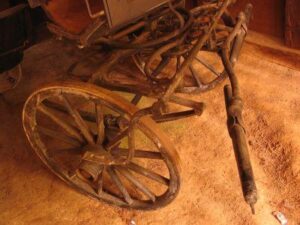Since the popularity of DNA testing, millions of people have sought information about their ancestors. However, not everyone wants to do the research or write about their family history once uncovered. This opens a huge market for those who enjoy looking for dead people and an opportunity to turn a hobby into a paying gig.
Creating a story around dates on a tombstone or from a marriage certificate can be daunting, even to a seasoned writer. Yet, as a writer collects more information about those being researched, much more is illuminated about the community where they once lived. Everything from home addresses and career paths can be discovered as well as local traditions and customs of the era. This basic research can serve as a launching pad for all sorts of writing opportunities, particularly when an intriguing tidbit captures your attention.
For example, I thought my family’s long lineage of tobacco farming was terribly dull until I discovered the way they produced their crop proved unique to their specific region of the world. Armed with this fascinating detail, the particular geographic features, and the culture surrounding their line of work, I prepared to write.
My hometown newspaper showed interest in stories related to this heritage and provided space for a monthly column. While the column did not pay, it did provide a platform for me to gain name recognition.
When awareness of the column spread, I discovered audiences I had not anticipated. In addition to local and regional historical associations, organizations, schools, museums, and libraries seek presenters on topics of local significance. Every speaking opportunity opens a door to selling books. Many of these entities publish newsletters and host websites providing additional placements for your writing.
While I worked a full-time paying job, I also placed articles in paying and non-paying genealogy venues in local and regional publications and digital platforms. As my skills improved and name recognition grew, I submitted articles to state-wide academic history journals and periodicals, building credibility as a researcher and writer.
With my credibility bolstered, I landed a publisher for one of my family history books, Farming in the Black Patch. The subject matter was a familiar industry – farming – and I used my family’s real-life experiences to tell the story. I also became a presenter for a statewide humanities organization. They paid me a small stipend and travel expenses, and in turn, I gained a much broader audience. Hope Clark belongs to the same organization speakers roster in her own state of South Carolina.
In time, invitations for other projects arrived that paid surprisingly well. The first was to pull together historical content for the National Association of State Procurement Officers so they could build a website to commemorate their 75th anniversary. I had never heard of this organization and knew nothing of its history. Yet, the same research and writing skills I used in searching for my ancestors allowed me to gather the necessary information and organize it in a usable format.
With a growing reputation as a local historian, I was invited to write a community history to commemorate my hometown’s bicentennial. This job came with a multi-year contract in a genre that I was already invested in and loved learning more about.
Writing about ancestors and local history takes persistence and skill. Reliable information can prove elusive, and documents can be difficult to find. To make the information interesting can be challenging. One resource I have found helpful is old newspaper articles that often provide details not typically recorded in documents such as obituaries or census records.
These tidbits of information combined with cultural heritage and local traditions add much to what otherwise would be as bland and uninformative as the dash between a birth and death date on a tombstone. Yet, in the hands of a gifted writer, those rich details are what cause history to come to life for readers.
###
Authors Bio:
Bobbie Smith Bryant is a Kentucky author residing in Louisville, Kentucky. She is retired from a 25-year career with a statewide association assisting cities in Kentucky with community and economic development concerns. Learn more about Bobbie and her writing at bobbiesmithbryant.com
Leave a Reply